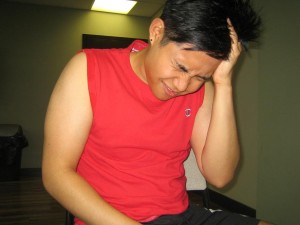Motion sickness can occur during a rocking boat or airplane ride. This does not cause any lasting issues but can make life miserable especially among those who travel a lot. Children from ages 5-12 years old, women and the elderly develop motion sickness more often. It is rare to occur among children younger than 2 years old.
What are the indications?
Motion sickness can trigger the following:
- Nausea
- Generalize feeling of being sick
Motion sickness should be prevented since the symptoms are difficult to stop once they start. - Vomiting
- Headache
- Sweating
These symptoms typically settle soon after the motion stops.
What are the causes?
An individual can end up with motion sickness when one component of the balance-sensing scheme perceives that the body is in motion but the other parts are not. If staying in a compartment of a travelling ship, the inner ear might feel the movement of the waves but the eyes could not see any movement. Thus, the inconsistency between the senses can lead to motion sickness.
One might feel sick from the motion of airplanes, cars, trains, boats or amusement parks. Some might become sick from flight simulators, video games or looking through a microscope. In some cases, the eyes see movement, but the body does not sense it.
Management
The individual can be given medications to prevent or minimize nausea and vomiting such as:
- Scopolamine that is available as a patch that is placed behind the ear
- Anti-emetics can be given to reduce nausea
- Some antihistamines require prescription that causes drowsiness. Most of these works effectively if taken before travelling.
How to avoid motion sickness
Motion sickness should be prevented since the symptoms are difficult to stop once they start. Once the symptoms start, one will begin to feel better only after the motion stops.
General tips to help avoid motion sickness include the following:
- Move the head as minimum as possible
- Avoid eating or drinking during short trips
- Do not drink alcohol or eat a heavy meal before travelling
- Try to avoid strong scents and spicy foods

